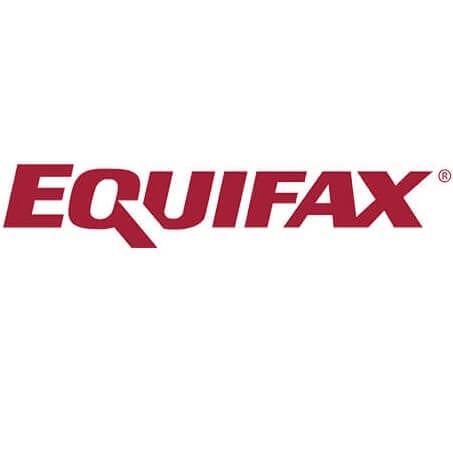This is part of a series of columns about how to protect important information and people in your life against fraud and scams. Stay tuned for more.
To be defrauded by scammers over the internet is bad enough. But it’s doubly wounding when the scam takes the form of relationship fraud, where a criminal pretends to be a friend, confidant or even a romantic partner.
“One of the things that’s uniquely devastating about romance scams is that the victim has not only lost money, but they’ve lost the emotional connection that they thought they had with the other party,” says Julie Kuzmic, senior compliance officer, consumer advocacy at Equifax Canada. “It’s an extra layer of betrayal,” says Kuzmic, adding that in addition to suffering financial loss, victims may experience deep sadness and shame which they might find it hard to recover from.
Unfortunately, more and more Canadians are falling victim to relationship fraud — particularly romance/investment scams, according to the Canadian Anti-fraud Centre (CAFC). Here’s what to watch out for.
How does relationship fraud work?
Romance and relationship scams typically start with the fraudster approaching someone on social media or dating apps or via email or text. Sometimes the goal is to form just enough of a bond to get the target to click on a link or reveal personal information, such as an email or physical address, birthdate or financial data. Criminals can use those details to commit identity fraud, such as applying for a credit card in your name. But the ruse can also lead to a longer and bigger con.
“Often, the fraudsters will groom a relationship over quite some time. It could be months,” Kuzmic says. Along the way, the fraudster will invent urgent situations—for example, claiming their paycheque is delayed and they need to pay a child’s tuition or they will be kicked out of university.
At first, fraudsters ask to borrow relatively small sums. “It might just be, ‘Can you help me out with 100 bucks?’” Kuzmic says. “And they may actually pay the money back.”
However, once they’ve gained a target’s trust, fraudsters may bring up an investment—often involving cryptocurrency—that they supposedly profited from, offering to help the target make fast money. According to the CAFC’s website, “They may even let you cash out some of your investment returns only to get you to invest a larger amount. Suspects will ‘coach’ on how to invest in their fraudulent cryptocurrency platforms.” Eventually, relationship fraud victims lose a huge amount, incrementally or in one big score. When their new “friend” suddenly becomes evasive or disappears, it turns out the person is fictional or a composite of several people’s names, photos, email addresses and other details.
Equifax Complete Protection
Equifax Complete Protection is a credit and cybersecurity protection service designed to help Canadians spot the signs of identity fraud faster.
Provides daily credit monitoring and alerts Scans for your personal data on the dark web Social media monitoring by industry leader ZeroFoxSubscription price: $34.95 per month
Relationship fraud warning signs to watch out for
“One of the very common red flags is any time there is a sense of urgency that is being conveyed by the other party,” Kuzmic says. Fraudsters prey on people’s willingness to help someone out, as well as their fear of coming across as rude, uncaring or suspicious.
When put in this situation, Kuzmic says, “It is always reasonable to need a minute to verify something.” Get off the phone (if necessary, say someone’s at the door), confer with a trusted person and take a rational look at what’s happening. With ever more sophisticated Artificial Intelligence (AI) tools at cyber-criminals’ disposal, Kuzmic adds, “it may not even be a person you are dealing with.”
The best defence against relationship fraud
To protect yourself from relationship fraud, bring the same healthy skepticism to online relationships that you bring to people you meet in person, Kuzmic says.
Be wary of unsolicited messages from people you don’t know, whether on social media or an app, or by text or email. Don’t click on just any links. Be cautious about ‘investment advice’ online, especially promises of easy riches. And avoid sharing personal information, which criminals can use to steal your identity.
How to report relationship fraud
Should you discover or suspect that you may be a victim of a relationship scam, follow these steps:
Notify your local police and the Canadian Anti-fraud Centre (CAFC). Don’t be embarrassed—they’ve likely seen it all before and are there to help. Notify your bank and other financial institutions you deal with. If you think your Canada Revenue Agency (CRA) account has been compromised, report it to the CRA. Lock down your accounts, at least temporarily, and change your passwords. Ask Canada’s credit bureaus, including Equifax, to add a fraud alert to your credit report.A higher level of fraud protection
For greater peace of mind, consider an extra line of defence. Equifax CompleteTM Protection is a subscription service that helps protect you from some of the tools fraudsters use to steal your personal information—such as phishing emails or malware links on social media—and can alert you if your identity has been compromised.
Features of Equifax Complete Protection include:
Daily credit monitoring and alerts of key changes to your Equifax credit report, such as a new credit card or loan application WebScan, which monitors the dark web (hidden websites where criminals traffic in stolen data) for personal information you provide Social media monitoring by ZeroFox, to alert you to suspicious activity on your social media accounts Online data encryption by NordVPN and password management by NordPass Parental controls from Bitdefender to restrict kids’ access to websites and apps Device protection from Bitdefender to help stop phishing attempts and block viruses and malware Support from an Equifax identity restoration specialist, if your identity is stolen Identity theft insurance up to $1 million for out-of-pocket expenses (not available in Quebec)Equifax Complete Protection costs $34.95 per month. To learn more, visit the Equifax website.
This article is sponsored.
This is a paid post that is informative but also may feature a client’s product or service. These posts are written, edited and produced by MoneySense with assigned freelancers.
Get free MoneySense financial tips, news & advice in your inbox.
Read more about fraud and scams:
How to protect yourself from identity fraud in Canada Why do Canadians keep falling for scams? How to protect your devices against identity theft How to find trustworthy finfluencers—plus, 5 to follow right now You’ve just discovered someone stole your identity—is it too late?The post Relationship fraud and romance scams: What Canadians need to know appeared first on MoneySense.














 Bengali (Bangladesh) ·
Bengali (Bangladesh) ·  English (United States) ·
English (United States) ·